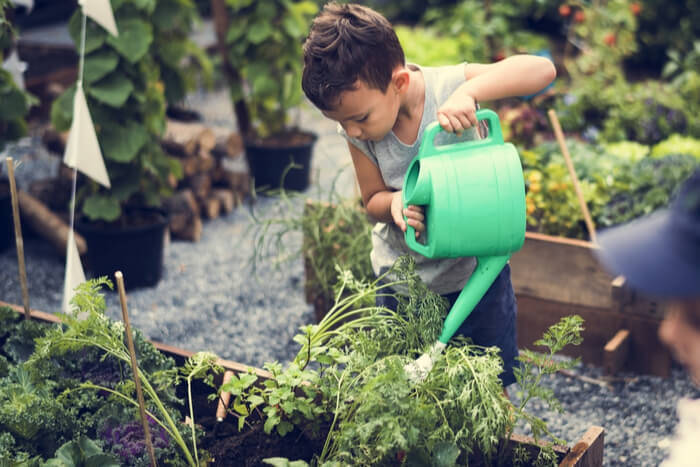Maintaining a thriving garden demands regular attention throughout the growing season. Sunlight, water, and nutrients are essential elements for the success of your plants. As a gardener, your primary concerns should revolve around providing adequate nutrients and water, especially if your garden enjoys the right amount of sunlight.
Taking care of your garden entails a combination of general plant upkeep and safeguarding against pests and diseases. With a commitment to weekly garden chores, you can efficiently manage your garden without consuming excessive time. Neglecting your garden, on the other hand, will demand considerably more effort and time to restore its health.
Gardening Essentials
Whether you’re a novice gardener or a seasoned enthusiast tending to a lush backyard, certain fundamental gardening responsibilities should never be overlooked. To ensure a beautiful home garden, prioritize the following tasks:
1. Watering
Regular and proper watering can work wonders for your garden’s health. However, to avoid overwatering, you must consider several factors when establishing a watering schedule. Take into account the specific watering needs of your plants, their growth stages, prevailing weather conditions, and the time of year.
Each plant type has its unique preferences regarding watering frequency and quantity. Additionally, remember that younger plants typically require more frequent watering than their mature counterparts. Be vigilant about local weather fluctuations; if there has been recent rainfall, be cautious not to overwater your garden. Plants typically require more hydration during the hot summer months and less during the colder winter season.
2. Soil Care
Ensuring that your garden’s soil meets your plants’ requirements for acidity, water drainage, and nutrients is crucial. Occasionally, you may need to make amendments to the soil to create an optimal growth environment.
For many greens and edibles, nutrient-rich soil is essential for thriving. Consider adding manure or compost to enrich the soil. Some flowers and vegetables may benefit from a layer of mulch to protect against weeds and pests while preserving soil quality.
3. Weed Removal
Weeds pose a significant threat to the well-being of your garden. They compete with your plants for resources, hinder their growth, and spread rapidly. Despite numerous weed-control techniques, there is no foolproof method to eliminate invasive plants completely.
Therefore, it’s essential to address weeds promptly. Keep a watchful eye on your garden and remove young weeds as soon as you spot them.
4. Raised Bed Gardening
Utilizing raised beds is an effective strategy to minimize weed growth and prevent pest infestations. Raised beds enable you to create a distinct growing environment for your edibles and specialty plants, granting you control over soil quality, nutrition, drainage, and bed placement.
5. Lawn Mowing
Regular lawn mowing not only enhances the appearance of your garden but also promotes healthy grass growth. During the summer, mow your lawn once a week, ensuring you trim no more than one-third of the grass length. In colder months, trim the grass as needed.
6. Pest Management
Various pests, such as insects and wild animals, can wreak havoc on your garden. They feed on your plants, spread diseases, and can ultimately kill your greens. Vigilance is key; be on the lookout for signs of infestation, including gnaw marks, holes in foliage, greasy trails, unusual insect activity, nests, or unpleasant odors.
7. Animal Protection
To safeguard your garden from wildlife and pets, consider installing fences, covers, or planting barrier plants. These measures prevent animals from digging around your plants, devouring your fruits, damaging your roots, or destroying your greenery.
Frequently Asked Questions
How to Begin Gardening for the First Time?
Starting a garden is a straightforward process that requires some basic gardening skills. Begin by selecting an appropriate garden spot, then choose seeds suitable for the location. Finally, provide proper care and nourishment for your garden.
Should I Remove Old Roots Before Planting?
Old roots can hinder the growth of young plants by blocking their access to water and nutrients. When preparing your garden spot for planting, it’s advisable to remove old roots, large rocks, and debris from the soil.
How Do I Eliminate Grass to Prepare a Garden?
Grass removal can be done manually using hand tools, hoes, or herbicides. For larger and more overgrown areas, a tractor may be employed. After uprooting the grass, use a rake and garden fork to clear and prepare the soil.
Wrapping Up
Caring for your garden is an integral part of successful gardening. Regular and timely maintenance ensures that your garden thrives and remains beautiful. In this article, we’ve discussed essential gardening maintenance tasks to help your garden flourish and stay vibrant.
